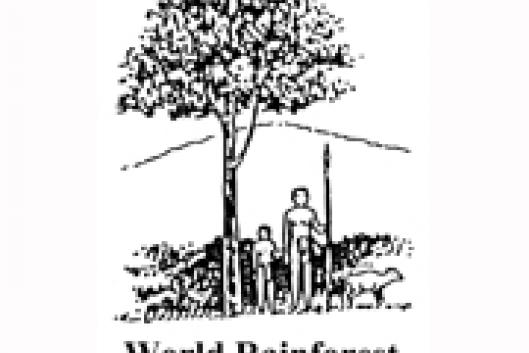Ten years after the Earth Summit, governments will be meeting again in Johannesburg, in an apparent effort to find and implement solutions to address the increasing social and environmental problems which are affecting the planet and its peoples.
Contrary to what happened ten years ago, there is a generalised feeling of despair among forest activists regarding the outcome of this summit. The reason is simple: during these past years both the social and environmental situation have worsened as a result of governments -- North and South -- failing to address the issue. On the contrary, they have worked hand in hand -- willingly or unwillingly -- with multilateral institutions to ensure the opening up of the world's resources to increased corporate exploitation and control.
This is particularly true of tropical forests. The result of governments agreeing to facilitate -- and even beg for -- transnational investments in order to ensure external debt repayment has been poverty generation and environmental destruction.
Infrastructure developments such as roads, hydroelectric dams, gas and oil pipelines have been high on the government-corporate agenda, in many cases imposed and at the same time facilitated by multilateral institutions such as the International Monetary Fund, the World Bank, and the Latin American, African and Asian multilateral banks.
The beneficiaries have been industrial logging, mining, oil and gas exploitation, large-scale commercial agriculture, cattle-raising, timber, pulpwood and oil palm plantations and shrimp farming. These industries then themselves constitute a second wave of attack against forests and forest peoples.
Governments know that. Multilateral and bilateral institutions, too. Even corporations know it. The causes of tropical deforestation are well-known to all the parties involved. Yet the causes of forest loss are not only not addressed. Those responsible are given even more support.
The world has reached a point where governments, multilateral institutions and corporate declarations and commitments have become impossible to believe in any more. Things continue to go in precisely the wrong direction. A few examples:
IMF structural adjustment programmes -- acknowledged as an underlying cause of deforestation -- continue to be implemented.
A new World Bank forest policy is now set to increase logging in the tropics.
The World Trade Organization now imposes its rules over multilateral environmental agreements, which will result in further forest destruction.
Corporate investment in logging, mining, oil and gas exploitation is increasing, resulting in deforestation and widespread forest degradation.
Northern governments show little willingness to find equitable solutions to issues such as unfair terms of trade and external debt, forcing Southern governments to exploit natural resources unsustainably.
Northern governments prove themselves equally unwilling to address the issue of climate change -- which itself will impact heavily on forest biodiversity -- through the reduction of fossil fuel emissions, instead promoting the spread of "carbon sink" tree plantations that will result in further replacement of forests.
Southern governments show themselves unwilling to acknowledge in law the territorial rights of indigenous and other forest-dependent peoples, which could be a first step in curbing forest loss.
Southern governments decline to implement land reform in agricultural areas as a solution to landless peasant migration to forest areas.
Even worse, the WSSD process appears to have been highjacked by corporations, which have been able to present themselves as part of the solution in spite of the fact that they constitute a major part of the problem. Instead of being controlled by governments, they are now apparently to become "partners" in sustainable development.
From a forest perspective, it is sufficient to see which are the corporations that are willing to establish "partnerships" to know the end of the story. The corporate leaders in the WSSD process include: Rio Tinto (destructive mining in forest areas), Shell (destructive drilling in forest areas), Aracruz Celulose (monoculture "green deserts" in rainforest areas in Brazil at the expense of indigenous peoples' lands), and UPM-Kymmene (forest destruction in Indonesia linked to pulp production).
The World Rainforest Movement therefore declares that for governments and relevant international institutions to become credible regarding their commitment to forest conservation, they should at least provide some evidence of political will to change track by publicly stating the need for:
- Recognition of indigenous and other forest peoples's territorial rights.
- Agricultural land reform.
- A moratorium on external debt repayment.
- A legal international instrument for corporate control.
- Equitable North-South trade relations.
- Decreasing overconsumption in the North.
- Profound reform of multilateral institutions (IMF, World Bank, regional banks) to put them at the service of people and the environment.
- Moratorium on oil, gas and mining activities in tropical forest areas.
If some of the above were taken up by the WSSD, forest activists would be given new hope and flock to its support. The failure to adopt such measures, on the other hand, will mean the UN system has accepted corporate over democratic rule.
